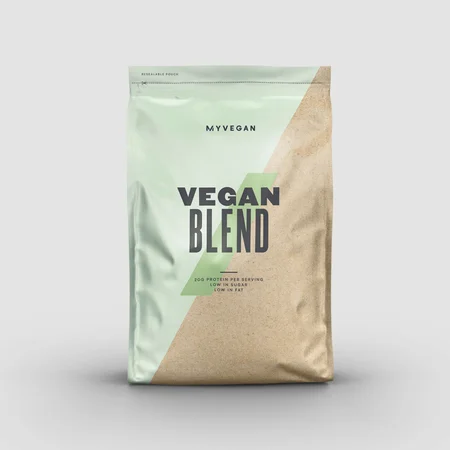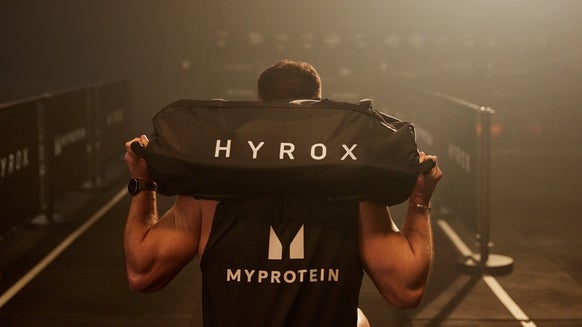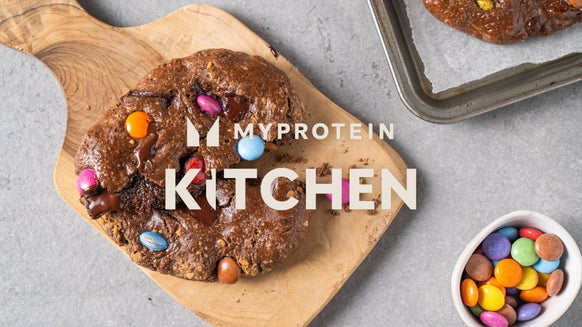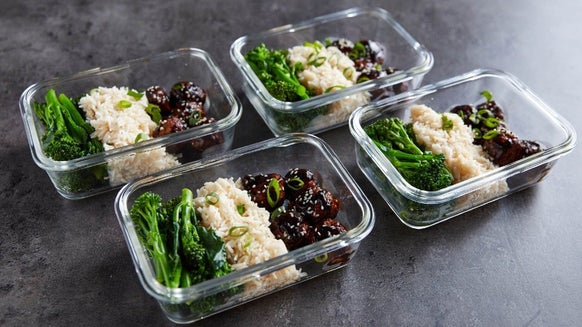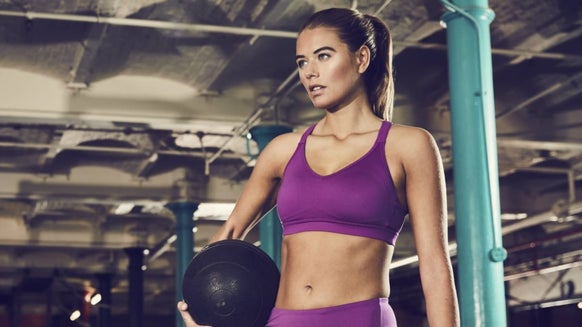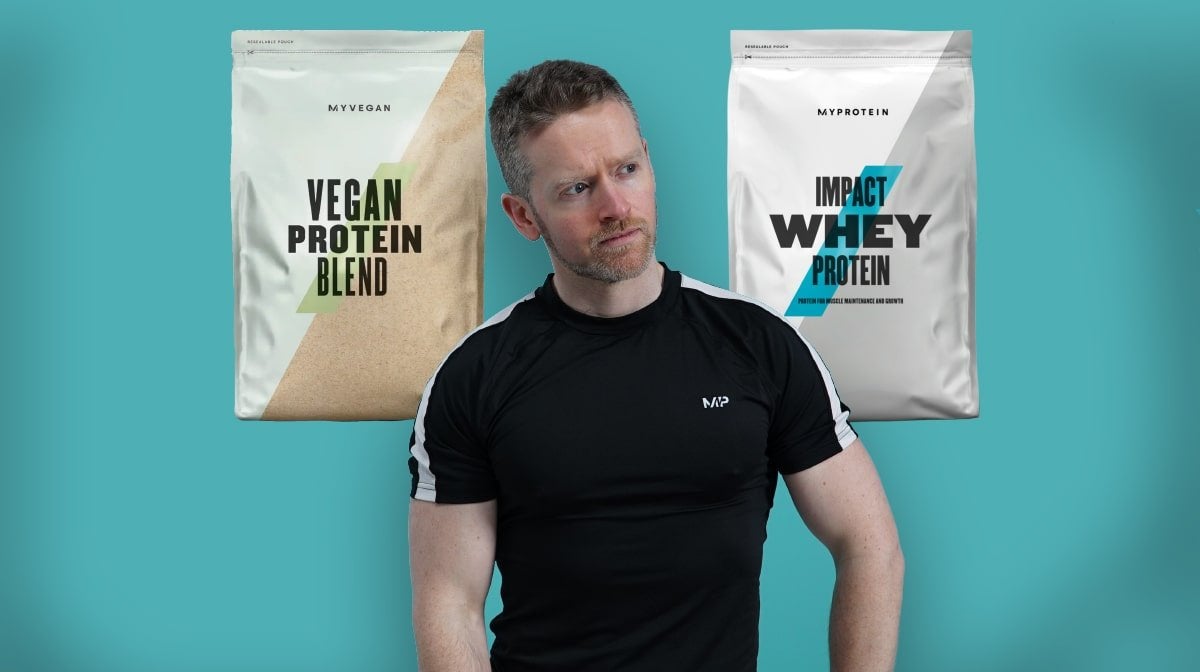
It’s no secret that getting enough protein is essential if you want to build muscle. There's no two ways about it. But even if you’re not trying to build muscle, your body still needs protein. It’s used for making hormones and vital to your immune function and bone health.
He's the king of nutrition over on the Myprotein YouTube channel. You know him, and we hope you love him: it’s Richie Kirwan, nutritionist and PhD researcher. This week he’s here to referee the battle between whey and plant proteins.
Muscle protein synthesis
There's simply no other way to start off a protein video than talking about muscle protein synthesis, or MPS. MPS uses the amino acids from the proteins you eat and drink to create new protein for growth and to repair muscle tissue.
You can stimulate MPS in two ways:
- Exercise
- Eating protein
The more you can increase MPS by eating protein, the more likely you‘ll be able to build muscle over time.
Why do different proteins have different effects?
Amino acids
Proteins in different dietary sources are made up from amino acids. Each of these proteins is made up from different amino acids, and this is the main difference between vegan and dairy proteins.
Protein from meat, eggs and dairy have all the amino acids needed to stimulate MPS, whereas plant proteins have lower levels of some amino acids. This lack of certain amino acids is the reason some plant proteins don’t stimulate MPS as well as most animal proteins do.
Plant proteins are generally lower in:
- Methionine
- Lysine
- Leucine
You’ll have heard of pea protein and rice protein. Both are vegan friendly and incomplete protein sources. This means they don’t have all the essential amino acids needed to stimulate MPS. So this is where a protein blend comes in handy. A blend will normally be a mix of two incomplete proteins combined to form a complete protein source, with all the amino acids your body needs.
Pea protein is lower in the amino acid methionine and higher in lysine, while rice protein is higher in methionine and lower in lysine. Combining the two gives higher levels of both amino acids than they would have individually. These are called complementary proteins.
If your goal is MPS, getting all the essential amino acids is very important. Whey protein is high in all essential amino acids, especially leucine, the amino acid responsible for starting MPS. This is why it’s recommended for muscle building.
Digestibility
Plant proteins come from plants. Obviously.
You may remember from school biology class that plant structures are made up from cellulose and other types of plant fibers, which can be particularly heard to break down. They're also made up of some anti-nutrients. These substances can reduce the absorption of vitamins and minerals, making it harder for your body to digest plant proteins than animal proteins.
To put that into context, 85-95% of protein in eggs or chicken is absorbed, whereas only 50-75% of protein in whole plant sources is absorbed.
But all is not lost — when a plant-based protein is abstracted and purified to make a plant protein isolate, the protein absorbability increases to the same level as animal proteins. This processing can improve the nutritional value of plant-based protein powders.
Whey is naturally very easy and fast to digest. Therefore more of it gets absorbed and is used to stimulate MPS in your muscles.
How good are vegan protein blends?
There's no bad time to talk about studies, so here we go.
One study compared two groups of young men taking 21g of whey vs 20g of soy protein while resistance training for nine months. The whey group gained 3.3kg of lean body mass on average, and the soy group gained just 1.8kg on average.
Another study saw one group take 17.5g of milk protein and another group take the same amount of soy protein for 12 weeks. In this study, the milk protein group gained more muscle.
Time for some facts. We know, or Richie knows, that 20g of good quality protein per day, like whey, is enough to almost maximally stimulate MPS in young, healthy people. Adding more won’t increase MPS much further because MPS has an upper limit. The amount of leucine in a protein has a big role to play in how much protein you need to eat to stimulate MPS. This is called the leucine threshold. Lower levels of leucine in some plant proteins may explain why plant proteins in smaller amounts aren’t as good as whey for stimulating muscle growth.
Studies that use larger doses of vegan protein powder 33g of soy or 24g of rice protein and similar amounts of whey show no difference in muscle growth after a few months of resistance exercise.
Another study shows that 30g of wheat protein can stimulate MPS to the same amount as 30g of milk protein. Wheat protein is known for being a very low-quality protein, but the study suggests that if you eat enough of a lower-quality protein, it can help to stimulate MPS as much as a higher-quality protein.
All the current research tells us that 1.6g of protein per 1kg of weight offers the maximum benefit for muscle growth. If you have four meals, that’s a total of 1.6-2g per kg per day, which falls within the current guidelines for building muscle. This is possible with vegan protein shakes, but it gets difficult trying to get that much protein from whole plant sources because protein absorption is not as good. If you try and get all your plant protein from whole foods, you may need even more than I’ve recommended here, which is possible but not easy.
In other words, Richie isn’t telling you how to live your life, but protein powders might be a good idea for vegans trying to put on muscle.
Which is a better-quality protein?
Easy. Whey protein is without doubt a better-quality protein. It's higher in essential amino acids, especially leucine, which is particularly important for MPS. It’s also super easy to digest and absorb.
Why choose a plant protein?
As a meat eater, after this you might be wondering why on earth anyone would opt for plant-based proteins, since whey does the same thing, and you need less of it and it’s of a higher quality. Well, there’s a few reasons. The first is whey or dairy products might not agree with you — which is more common than you might think.
There’s also the environmental factor. Vegan proteins use less land, less water and less energy compared to the production of animal protein. So it’s more environmentally efficient to get your protein directly from plants. And there are also ethical reasons — you might choose not to eat animal produce, in which case whey is not for you.
Take Home Message
The choice is yours. If you’ve opted for a vegan lifestyle, then vegan protein powders are a sure-fire way to make sure that you’re not only hitting your protein goals but also that you’re getting all of your nine essential amino acids in — which could otherwise be a challenge.
READ MORE HERE:


